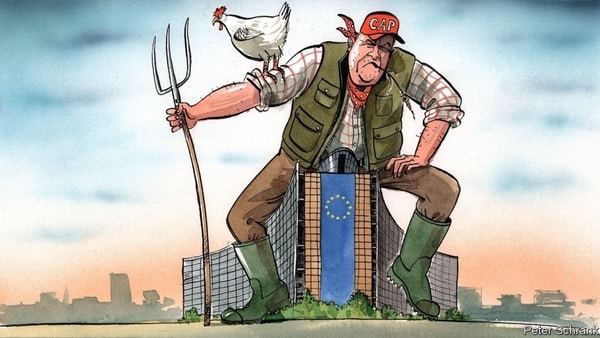The Economist says, armed with a device designed for throwing tennis balls for dogs, it is possible to launch an egg a very satisfying 60 metres.
Head to the Quartier Leopold in Brussels on the right day and you can see farmers from across Europe firing a wide range of produce an impressive distance at Belgian riot police. It is during these regular protests at the European Union’s headquarters that the ingenuity, bravery and diligence of the European farmer truly shows itself.
In one episode a pair of tractors slowly drove through a barbed-wire barricade, as cops scattered. When an armoured police van turned up, the farmers drove into that too. It took two water cannons at full blast to make the tractors retreat. Over the years, grumpy farmers have covered stoic Belgian riot police in hay, eggs, and milk direct from the udder.
A riot can be the voice of the unheard. It can also be a tantrum of the ludicrously privileged. European farmers are politically powerful in the same way that the sky is blue: it is a fact so universally acknowledged that it is usually not worth mentioning.
This power was apparent this week in the final negotiations between diplomats, members of the European Parliament and officials over the terms under which farmers will receive €270bn ($330bn) in 2023-27. That the farmers will get the cash is a given. The debate is about how many conditions will be attached, with the options ranging from not a lot to very few indeed.























